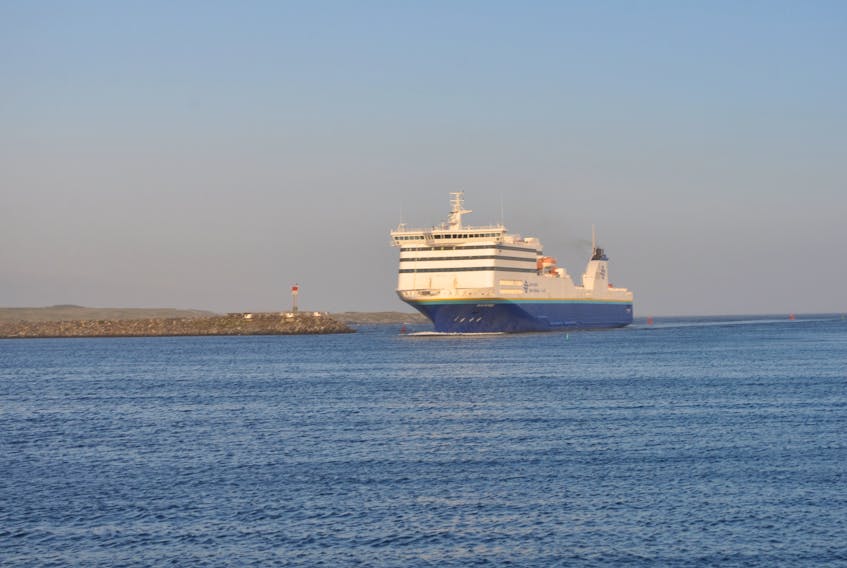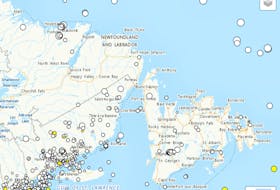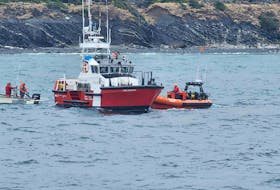PORT AUX BASQUES, NL – Marine Atlantic customers crossing the Gulf of St. Lawrence in the upcoming weeks may find their trip is taking longer than anticipated.
Marine Atlantic spokesperson Darrell Mercer said the slowdown will be the result of a federal government speed-reduction measure introduced this summer to help decrease the risk of ships striking North Atlantic right whales in the gulf.
Mercer said the measures were put in place as a result of a number of whale deaths this summer.
“There seems to be damage to the whales from ship strikes and fishing gear, so one way to prevent that is to slow vessels,” Mercer said during a phone interview on Oct. 19.
The North Atlantic right whale is an endangered species that migrates along the coast of the United States, through the Cabot Strait and into the Gulf of St. Lawrence each year.
According to the Department of Fishers and Oceans (DFO) website, from June-September 2017 there were 13 incidents involving 12 North Atlantic right whales in the Gulf of St. Lawrence.
In a blog posted to its website (www.marineatlanticjourney.ca) in early October, Shri Madiwal, Marine Atlantic’s director of fleet operations, explained that due to the migratory nature of the right whale, Marine Atlantic is preparing for when the whales begin their migration through the Cabot Strait and into more southern waters.
Mercer said current average speed during crossing is 14 knots, with an average crossing time of six to seven hours.
Once the whales begin migrating through the Cabot Strait, which could occur over the next several weeks, speed will drop to 10 knots.
“We know that will mean a longer crossing and we are looking at various scenarios to take that into account,” Mercer said.
Mercer said Transport Canada is conducting regular surveillance and providing updates on the whales’ progress. While it’s uncertain when the migration will begin, he said, Marine Atlantic has established an internal committee to work with Transport Canada officials.
Based on these meetings, Marine Atlantic is developing various scheduling scenarios. Schedule adjustments will depend on when the actual migration takes places.
“Once we see they are moving (through the Cabot Strait) we will have to make adjustments to our schedule,” Mercer said.
Mercer said while Marine Atlantic realizes the slower speed will impact sailing times and schedules, causing an inconvenience to customers, the number of right whales killed this year is concerning and it’s important to protect such endangered species during their migration period.
Marine Atlantic will provide updates regarding any upcoming sailing adjustments on its website and through other social media initiatives.









